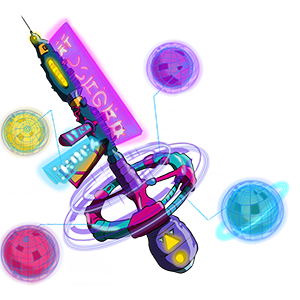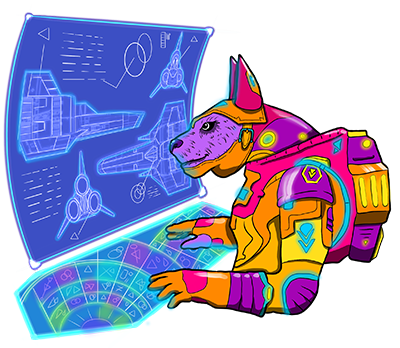In the fast-paced and ever-evolving landscape of localization, efficiency isn’t just a goal—it’s a necessity. As part of our ongoing series, “Building Resilient Multicultural Teams for the Future of Work,” we turn our attention to the experiences of our Polish and German teams. Led by Alicja Sliwka and Wolfram Arend, these teams have faced unique challenges in optimizing workflows, particularly in remote and distributed settings.
In this interview, Alicja and Wolfram share the strategies that have proven most effective in maintaining high standards of productivity without sacrificing team morale, as well as the tools and techniques that have helped them navigate the complexities of remote work.
How do you make sure efficiency improvements are sustainable and do not negatively impact the team’s morale and the work culture?
ALICJA: It’s essential to involve the team in the processes and to equip everyone with the training and tools needed to reach the goal. Engaging the team from the very start of the planning process can have a significant impact – it helps to not only generate, understand, and implement ideas but also to enhance the team’s overall well-being.

When individuals are given the opportunity to participate in decision-making, new ideas are more likely to be accepted and team members build a sense of mutual appreciation. Maintaining open and ongoing communication allows everyone to grasp the purpose and details of upcoming changes, making it easier to implement these changes in the workplace with confidence while also supporting effective monitoring and control processes.
It’s also crucial that these improvements don’t lead to a significant increase in workload, as this could stifle creativity and potentially result in burnout. Finally, recognizing and rewarding people for their successes and proactive efforts is key to making them feel valued and appreciated.
Which techniques have you found most effective in encouraging team participation and idea generation?

WOLFRAM: Establishing trust among team members is essential to creating an environment where everyone feels safe and encouraged to share their ideas. When people trust each other, they are more likely to share their thoughts, and this leads to a richer exchange of ideas.
To further enhance idea generation, it’s valuable to engage with other teams to understand their workflows and approaches to solving problems. When facing roadblocks,it has been helpful for us to reach out to other teams to see if they have already come up with solutions to the problems we are tackling.
This practice of consulting with different teams can lead to the cross-pollination of ideas across languages and areas of expertise, sparking innovative solutions and fostering a collaborative culture that benefits the entire organization.
In what ways have cross-functional collaborations within our organization improved your team dynamics and efficiency?
ALICJA: We have undoubtedly strengthened our relationships with other teams, leading to greater trust and collaboration. The sharing of skills and knowledge has significantly enhanced our problem-solving capabilities and sparked the development of innovative ideas. The collaboration between our translation and localization teams has introduced new tools and guides, which have greatly improved our understanding of each team’s needs and capabilities. This deeper insight has directly contributed to increased efficiency and streamlined processes. Furthermore, this cross-functional teamwork has fostered a culture of continuous learning and adaptation, allowing us to more effectively meet challenges and seize opportunities for growth.
How has the Champions Initiative impacted your team’s knowledge management and training processes?

WOLFRAM: The Champions Initiative has significantly enhanced our team’s access to specialized expertise by providing direct, easy-to-reach support through a single point of contact, just a click away.
By pooling expert knowledge and making it readily available, we’ve improved our understanding of CAT tools, various software platforms, gaming localization, subtitling, and many other areas.
This initiative has allowed us to regularly fill critical knowledge gaps and resolve issues more quickly. As a result, the Champions Initiative has been instrumental in boosting efficiency and ensuring our teams have the resources they need to succeed. It is always good to know who is your go-to person that has the knowledge to help you find solutions.
Can you share an example where empowering team members to make decisions within their responsibilities led to positive outcomes? What challenges did you encounter with this approach?
ALICJA: Before taking a longer leave, one of our LQAs proposed creating a language-specific guide for a new project, in which she was the primary expert at the time. She took the initiative to organize a brainstorming session during the creation of the guide and gave team members an opportunity to present feedback. This process not only deepened the existing team members’ understanding of the project but also served as an invaluable resource for onboarding newcomers, significantly accelerating their learning curve. The guide has since become a key reference tool, ensuring continuity and knowledge sharing within the team. Since the project has become our permanent responsibility, the main challenge we anticipated was keeping the guide updated. Recognizing the importance of keeping the guide up to date, she seamlessly took on this responsibility upon her return, incorporating it into her SMART goals and ensuring its continued relevance for the team.
What key performance indicators (KPIs) do you consider most critical for tracking your team’s efficiency and success?

ALICJA: Given the specifics of our field, the most crucial KPIs are those that measure productivity and the team’s ability to meet deadlines. These indicators help us assess whether the workload is manageable and if team members are meeting performance standards. Effective communication plays a significant role in our success, so feedback from each team member about processes and from clients about their satisfaction is incredibly important.
Additionally, having a KPI to track the entire training process is highly valuable. It not only saves time by streamlining onboarding but also ensures that training is effective and that new team members quickly become productive. This comprehensive approach to KPIs enables us to monitor performance accurately, make data-driven decisions, and continuously improve our processes and outcomes.
WOLFRAM: On the German team, the most important KPIs are feedback sheets from and for our vendors, which we thoroughly analyze and keep up to date. Other KPIs include on-time delivery, the percentage of projects completed within the agreed deadlines, and the even distribution of the workload.
One unofficial KPI, which is important to me, is the happiness of the team. To make sure that we grow together as a team, it is important that every team member feels heard, especially in difficult times, and that team-building measures are cultivated.
What unique challenges do you encounter when optimizing workflows for a remote, distributed team? How do you tackle these challenges to ensure smooth and efficient processes?
WOLFRAM: Communication within remote teams can be challenging, so it is essential that all interactions are clear and concise. When working with vendors across different continents, it’s crucial to consider time zones to ensure smooth collaboration. To respect regular working hours, we strive to assign tasks to LQAs who live in or near the relevant time zones.
We carefully arrange working hours to align with our clients’ demands, while always prioritizing the protection of local working hours and respecting daily routines. This approach helps maintain efficiency and supports a balanced work-life dynamic for all.
A unique challenge is that some team members live in areas that might be affected by environmental circumstances (like seasonal hurricanes, tropical thunderstorms, or other things of that nature) that prevent them from working. So, you must always plan ahead, have a plan B, and line up a backup LQA.
Which tools or strategies have you found most effective in enhancing workflow efficiency for remote and distributed teams? How do you evaluate and implement them to ensure they meet your team’s needs?

ALICJA: The most effective tool implemented within the company is the task tracker. This tool consolidates tasks from various platforms, organizing them and providing detailed descriptions. By precisely tracking timelines and recording when tasks are completed, the tracker also collects valuable data on workload distribution, effectively functioning as a time management tool.
During its implementation, key steps included comprehensive training, thorough testing, and the collection of feedback from coordinators, team members, and clients to ensure the tool met their needs. Additionally, we standardized the time zone to prevent confusion and maintain accurate data management.

Alicja Śliwka is an experienced localization professional with a background in film production and team coordination. She holds a bachelor’s degree in Logistics from the University of Łódź. Alicja has worked in various roles, from LQA tester to coordinator, and was focused on advancing her career in video game project management, deepening her expertise in game development processes.

Wolfram Arend is a sworn translator and LQA expert with 10 years of experience in translation and 6 years of experience in the video game industry. He holds degrees in Middle Eastern Studies and Arabic. Wolfram’s passion for languages and gaming has driven his work in the video game industry, which has included several AAA titles. He joined Terra in 2022 and became the German team’s coordinator in January 2024.



